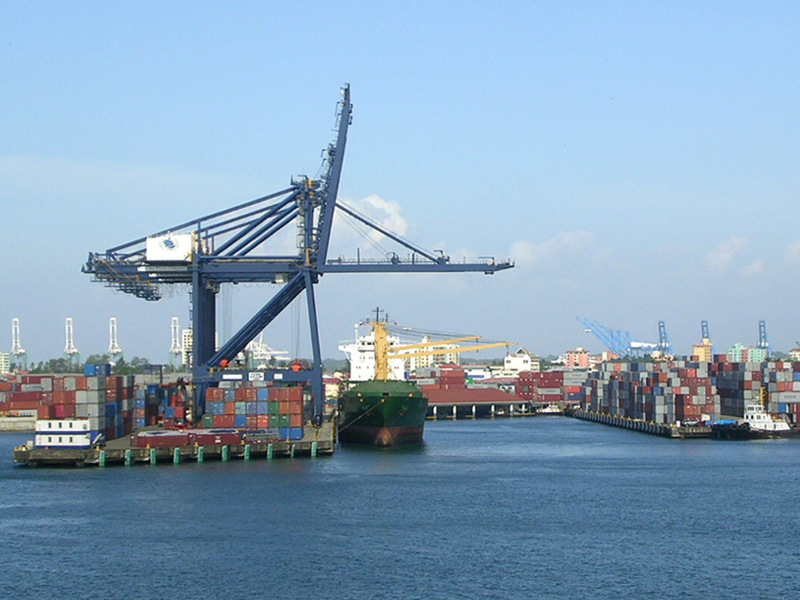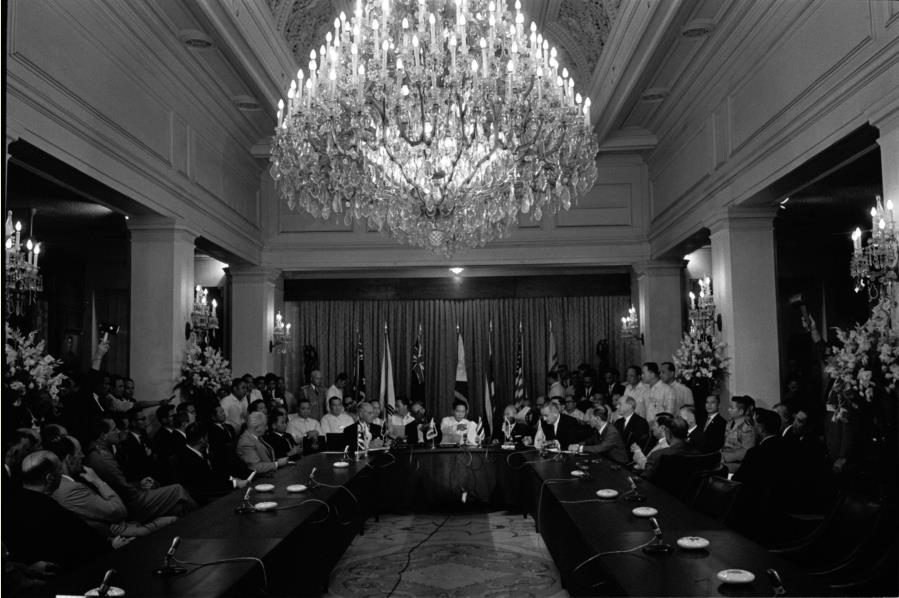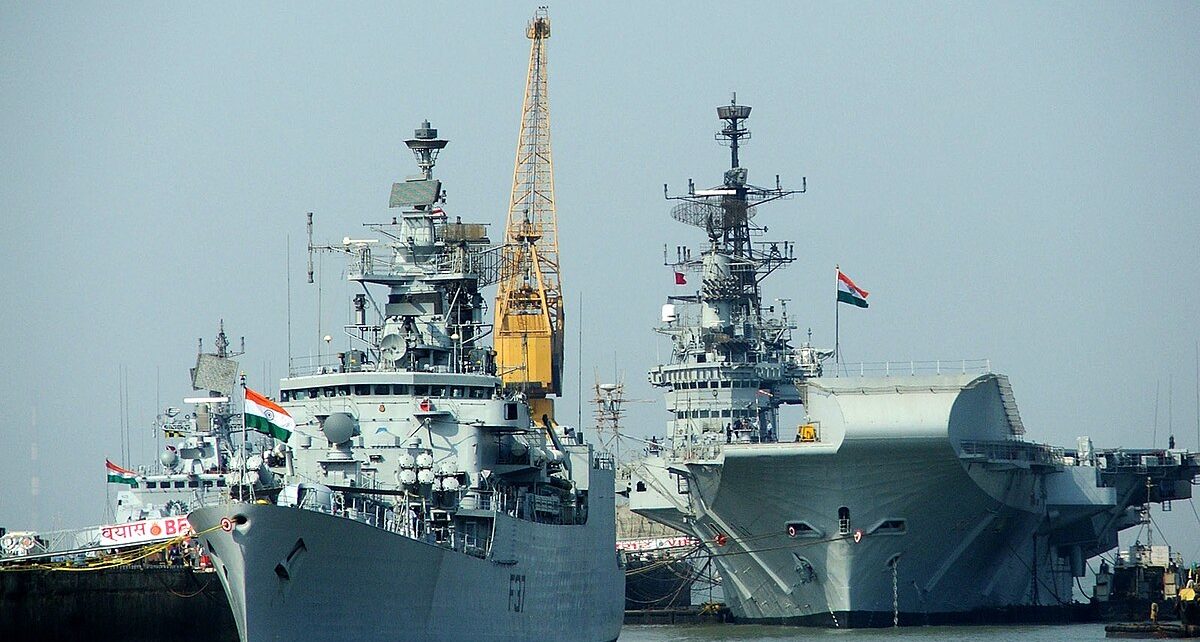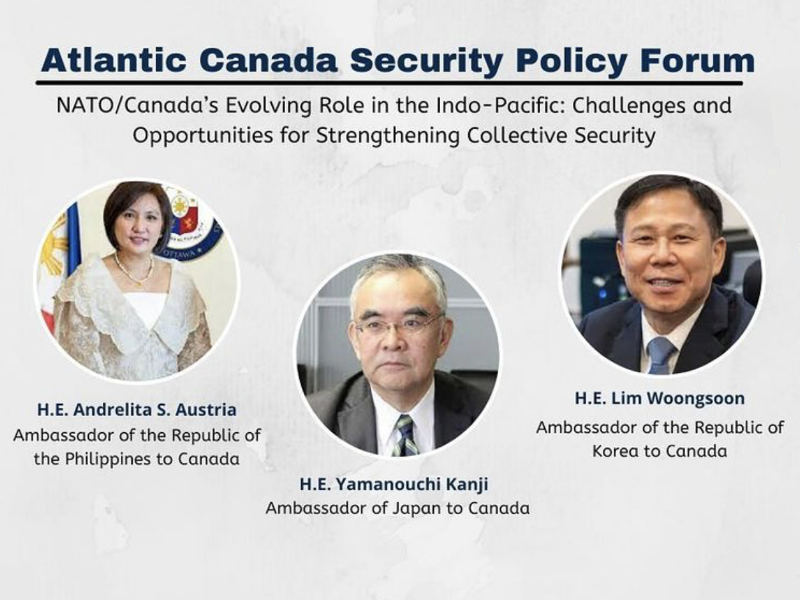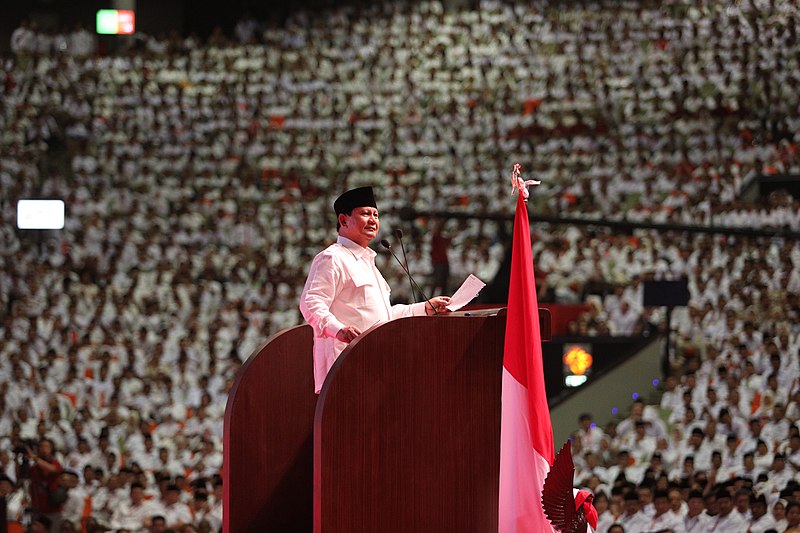Recently, Hong Kong lawmakers further contributed to the decay of democratic and civil rights in the city by passing a second bill designed to suppress dissent. The Government of Canada firmly expressed its opposition to these developments. Yet, in the absence of new substantive policy measures, its statements ring hollow. If the Government of Canada Read More…
Indo-Pacific and NATO
The Indo-Pacific is the geopolitical centre of the world and combines the Asia-Pacific and the Indian Ocean into a single region. As a strategic concept, the Indo-Pacific captures the interest of global powers like the U.S., China, India, Australia, Japan, and the UK, and tests NATO’s ability to adapt and maintain global peace in an inter-connected world. The program’s mandate is to provide Canadians with an analysis of security challenges in the region and to uncover the interplay of global powers, amidst emerging multipolarity in the region.
China’s Ascendance: Its History And Hazards – Part 3: Who Does Hong Kong Belong To? China’s Domestic Struggles
Why does Hong Kong have its own team representing it at the Olympics? Why do some Hong Kongers refuse to identify as Chinese? It is because, until this day, the international status of Hong Kong is still unclear. This has implications not only for Hong Kong, but also for mainland China’s domestic and international stability. Read More…
Action is Needed and Words Won’t Suffice: Why Canada Must Bolster Its Support for Hong Kong (PART 1)
The Chinese Communist Party’s (CCP) most recent attempt at forcibly reshaping Hong Kong in its own image occurred on March 19th, 2024, when the Government of Hong Kong passed The Safeguarding National Security Bill (Safeguarding Security Bill). The Bill reinforces The Law of the People’s Republic of China on Safeguarding National Security in the Hong Read More…
Steering Through Dualities: The Chabahar Port and the Compartmentalization of Indian Foreign Policy
India’s recent agreement with Iran on the operation and development of Chabahar port is a significant development in the geo-political equation in the Indian Ocean. Under the agreement, Indian company India Port Global Limited (IPGL) would take over the management of the strategically important port located on the Gulf of Oman for 10-years with an Read More…
Tides of Power: China’s Potential Strategic Dominance in Shipbuilding and Its Influence on Naval Power for the U.S.
China has a significant position in global commercial shipbuilding and its control is growing, granting it a formidable strategic industrial advantage in modernizing and expanding the capabilities of the People’s Liberation Army Navy (PLAN). This is important as the PLAN’s modernization, in numerical and tonnage, combined with its intention to move beyond a littoral naval Read More…
From Minilaterals to Indo-Pacific Treaty Organization: An Idea Whose Time Has Come?
FOIP and RBIO Under Threat While many of the North Atlantic Treaty Organization (NATO) member-states are heavily preoccupied with providing military assistance to Ukraine’s self-defence against Russia’s war of aggression in the eastern flank, the latest string of events in the Indo-Pacific is a growing cause of concern that could spark a regional armed conflict Read More…
Roaring Rivals: The Tiger and the Dragon, and the Indo-Pacific Chessboard
India and China are forecast to be the second and third-largest economies in the world by the turn of the next century. The dynamics between these powers demonstrate an uneasy competition as each state tries to increase its own sphere of influence at the expense of the other. These dynamics are thus a mixture of Read More…
NATO Association of Canada and student organisation from Memorial University of Newfoundland officially launches the Atlantic Canada Security Policy Forum
You can listen to our recording of the event here. The NATO Association of Canada, in partnership with student organizations based in Memorial University of Newfoundland, namely the Political Science Graduate Students’ Society (MUN PSGSS), Filipino Students’ Association (MUNFILSA), Women in Cybersecurity (WiCys) – MUN Chapter, and Youth Atlantic Treaty Association – North Atlantic Treaty Read More…
The Rise of the ”TikTok General”: Unpacking Possible Continuities and Changes in Indonesia’s Foreign Policy under President-Elect Prabowo Subianto
Abstract: Indonesia’s election commission has confirmed that Minister of Defence Prabowo Subianto will be the next President of Indonesia. What could possibly remain and change in Jakarta’s foreign policy? In this article, Program Editor Mark Davis Madarang Pablo analyzes the probable sets of economic and security policies that Subianto might pursue against the backdrop of Read More…
Special Report: Preserving the Peace in the Taiwan Strait under President-Elect Lai Ching Te
Abstract: A staunch advocate of the Republic of China (Taiwan)’s political self-determination, Lai Ching-te of the Democratic Progressive Party won the presidential election in Taiwan, leading some experts to speculate that the country could be inching closer towards an armed conflict with China. How can NATO member-states and security partners help strengthen Taiwan’s national resilience Read More…




